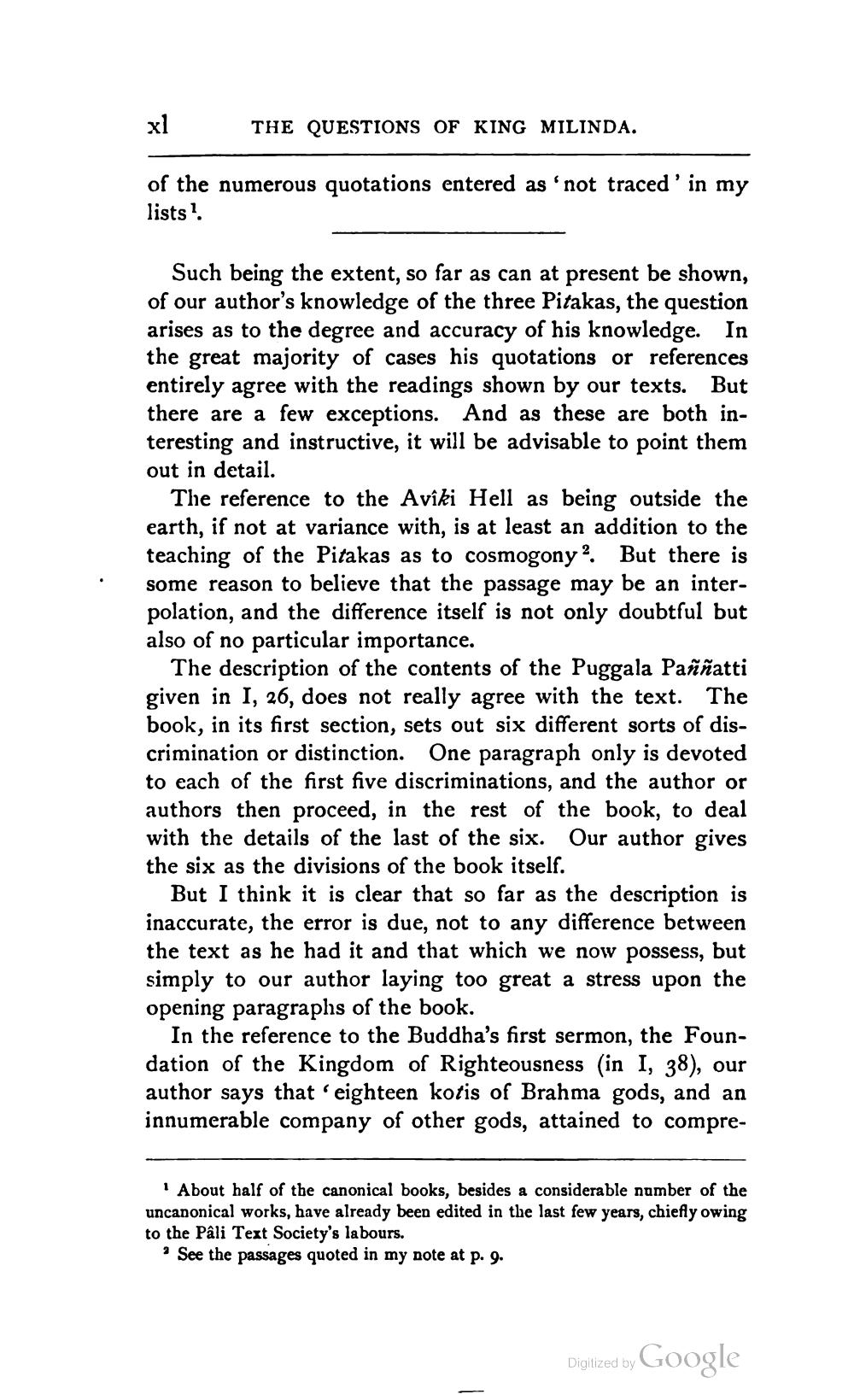________________
xl
THE QUESTIONS OF KING MILINDA.
of the numerous quotations entered as 'not traced' in my lists 1.
Such being the extent, so far as can at present be shown, of our author's knowledge of the three Pitakas, the question arises as to the degree and accuracy of his knowledge. In the great majority of cases his quotations or references entirely agree with the readings shown by our texts. But there are a few exceptions. And as these are both interesting and instructive, it will be advisable to point them out in detail.
The reference to the Avîki Hell as being outside the earth, if not at variance with, is at least an addition to the teaching of the Pitakas as to cosmogony? But there is some reason to believe that the passage may be an interpolation, and the difference itself is not only doubtful but also of no particular importance.
The description of the contents of the Puggala Paññatti given in I, 26, does not really agree with the text. The book, in its first section, sets out six different sorts of discrimination or distinction. One paragraph only is devoted to each of the first five discriminations, and the author or authors then proceed, in the rest of the book, to deal with the details of the last of the six. Our author gives the six as the divisions of the book itself.
But I think it is clear that so far as the description is inaccurate, the error is due, not to any difference between the text as he had it and that which we now possess, but simply to our author laying too great a stress upon the opening paragraphs of the book.
In the reference to the Buddha's first sermon, the Foundation of the Kingdom of Righteousness (in I, 38), our author says that eighteen kotis of Brahma gods, and an innumerable company of other gods, attained to compre
About half of the canonical books, besides a considerable number of the uncanonical works, have already been edited in the last few years, chiefly owing to the Pâli Text Society's la bours.
See the passages quoted in my note at p. 9.
Diglized by Google




